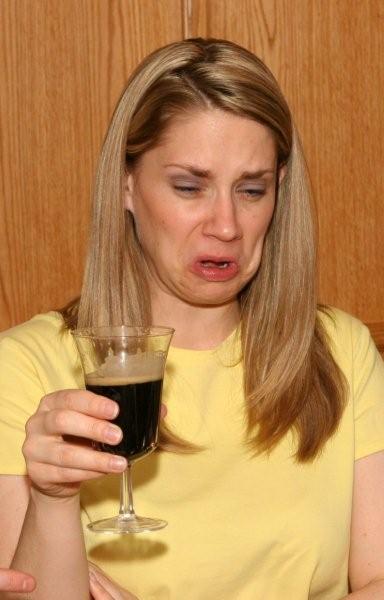Pete Brown has done sterling work on debunking the Health Select Committee report on alcohol abuse, and Melissa Cole
reports on the Temperance mob hiding behind an 'independent' think tank. But the shitkicking continues apace...
The
BBC News website this morning reported on Home Office plans for "cracking down" on alcohol abuse. These include bans on all you can drink promotions, offering smaller measures, compulsory ID checks and the availability of free tap water. Enforcement would include fines and/or imprisonment.
Chris Grayling, shadow Home Secretary, pitched in with some Tory measures. He'd already proposed changing labelling of alcoholic drinks so that units were replaced by centilitres of alcohol. Now, however, he added some new bits of meat to the pot - local authorities would have the power to levy a surcharge on on-trade establishments open after a certain time; establishments breaching licensing rules would be closed down. And, most controversially if you like beer, he suggests that strong beer, alcopops and some types of cider (tramp juice, mainly) be subject to huge increases in duty, labelling them "problem drinks".
Grayling then turned up on The Daily Politics (watch him
here) at lunchtime to amplify his party's thinking. Andrew Neill had already interviewed BBPA's Brigid Simmonds (their latest response to the measures is
here) but there was, sadly, no open discussion where she could challenge or question Grayling.
Neill wanted to know why gin, whisky, wine and sherry would not be classified as "problem drinks" but failed to get a meaningful response. Grayling, doing what our beloved politicians do and talking in stereotypes, offered the "little old lady who likes a glass of sherry" as an unintended victim of such a move. When asked what would happen if those priced off beer and lout went to gin, he didn't reply.
Unchallenged, Grayling was allowed to assert that beer was different to when Neill and he were young men - that it was today some 30-40% stronger. His party didn't want to proscribe scrumpy, he earnestly related, just the drinks causing the problems on our streets.
Beyond the bullshit and the attack on the on-trade, what really winds me up is the idea that those who consume wine, sherry and spirits aren't problem drinkers. How much have wine sales rocketed in pubs over the past decade or two? This is about that shorthand again. Who drinks beer? The working/underclass. Who's out there turning our town centres into war zones every week? Have a guess. What about all that cost to the NHS? Hmmm, I wonder...
And this whole nonsense about drinking games? When did any MP witness the Dentist Chair? They didn't. They saw it where they meet real life, on the front page of the tabloids, in this case in 1996, and the event was in fucking Hong Kong.
I never voted for some smarmy pol so he or she could tell me how I have to live. I don't expect to have to feel guilty about my fondness for good beer once or twice a week, or to carry any kind of stigma because of it. And yet, if our rulers and wannabes aren't quite speaking with one voice, their direction of travel is the same. My weekly bar-propping at The Rake will label me as a binge drinker, supping on "problem" strong beer. So what if I didn't rob a shop or try and kill somebody on the way home? It's only a matter of time...
 With this in mind, I've just written to the Radio Times to clarify the source of stats used to buttress an article on portrayal of alcohol and pubs in the latest issue, written by their Soaps reporter Gareth McLean. I've used some of Pete's figures to counter the arguments presented about rising consumption (as we know, over 10 years, consumption, especially in the on-trade, is falling). We'll see if they use the letter, but even if they don't, I'm going to persist until I know how and where he got his numbers.
With this in mind, I've just written to the Radio Times to clarify the source of stats used to buttress an article on portrayal of alcohol and pubs in the latest issue, written by their Soaps reporter Gareth McLean. I've used some of Pete's figures to counter the arguments presented about rising consumption (as we know, over 10 years, consumption, especially in the on-trade, is falling). We'll see if they use the letter, but even if they don't, I'm going to persist until I know how and where he got his numbers.




